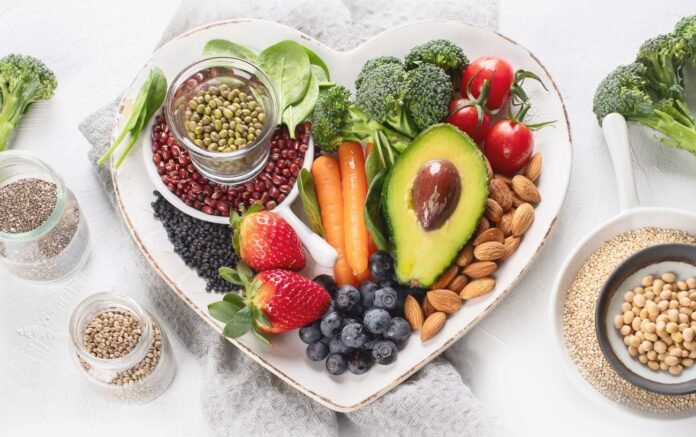The 80/10/10 diet, pioneered by former athlete and raw foodist Dr. Douglas Graham, has garnered significant attention as an eating approach that emphasizes a high intake of carbohydrates while limiting proteins and fats. Advocates of this diet tout its potential benefits for weight loss, improved health, and disease prevention.
Proponents of the 80/10/10 diet advocate for a predominantly plant-based, low-fat, and raw food intake. The diet encourages individuals to consume 80% of their daily calories from carbohydrates, primarily derived from fruits and vegetables. Meanwhile, protein intake is limited to around 10%, obtained from sources such as legumes, nuts, and seeds, while fats also make up approximately 10% of daily calorie intake.
One of the key principles behind the 80/10/10 diet is the belief that consuming primarily raw, plant-based foods can lead to easier digestion, improved nutrient absorption, and sustained energy levels. By focusing on nutrient-dense, whole foods, proponents claim that individuals can achieve and maintain a lean body mass while feeling satiated and energized throughout the day.
Furthermore, adherents of the 80/10/10 diet often report experiencing weight loss as a result of adopting this eating approach. The emphasis on low-fat, high-carbohydrate foods may lead to a reduced calorie intake, which can contribute to weight loss over time. Additionally, the abundance of fruits and vegetables in the diet provides essential vitamins, minerals, and fiber, which can support overall health and well-being.
Despite its potential benefits, the 80/10/10 diet may not be suitable for everyone, and there are several considerations to keep in mind. Critics of the diet argue that it may not provide adequate protein and fat intake for certain individuals, particularly those with higher protein requirements such as athletes or individuals with specific health conditions.
Moreover, transitioning to a predominantly raw, plant-based diet may require careful planning to ensure sufficient nutrient intake and prevent deficiencies. Some individuals may also find it challenging to adhere to the strict guidelines of the 80/10/10 diet long-term, particularly if they are accustomed to a different eating pattern.\
The 80/10/10 diet’s emphasis on raw, plant-based foods aligns with the principles of whole food nutrition, promoting the consumption of nutrient-dense foods in their natural state. By prioritizing fruits, vegetables, and other plant foods, individuals following this diet may benefit from an increased intake of essential vitamins, minerals, antioxidants, and fiber. These nutrients play crucial roles in supporting overall health, including immune function, digestion, and cardiovascular health.
Furthermore, the 80/10/10 diet encourages individuals to focus on foods with a high water content, such as fruits and vegetables, which can help promote hydration and support optimal bodily functions. Proper hydration is essential for maintaining healthy skin, regulating body temperature, and facilitating nutrient transport and waste removal within the body.
In addition to its potential benefits for physical health, the 80/10/10 diet may also have positive implications for mental well-being. Research suggests that diets rich in fruits, vegetables, and whole grains are associated with a reduced risk of depression and anxiety. The abundance of plant-based foods in the 80/10/10 diet may support mental health by providing essential nutrients and promoting a balanced mood.
Despite these potential advantages, it is essential to approach the 80/10/10 diet with caution and awareness of potential drawbacks. One concern is the risk of nutrient deficiencies, particularly in protein and fat. While fruits and vegetables are rich in vitamins, minerals, and antioxidants, they may not provide adequate amounts of protein and healthy fats, which are essential for various physiological functions.
To mitigate the risk of nutrient deficiencies, individuals following the 80/10/10 diet may need to carefully plan their meals to ensure they are meeting their nutritional needs. This may involve incorporating a variety of plant-based protein sources, such as legumes, nuts, seeds, and grains, into their diet. Additionally, including small amounts of healthy fats from sources like avocados, nuts, and seeds can help provide essential fatty acids and support overall health.
Another consideration when following the 80/10/10 diet is the potential for gastrointestinal discomfort, particularly for individuals transitioning to a high-fiber, plant-based diet. Some individuals may experience bloating, gas, or digestive upset as their bodies adjust to the increased fiber intake. Gradually increasing fiber intake and staying hydrated can help minimize these symptoms.

